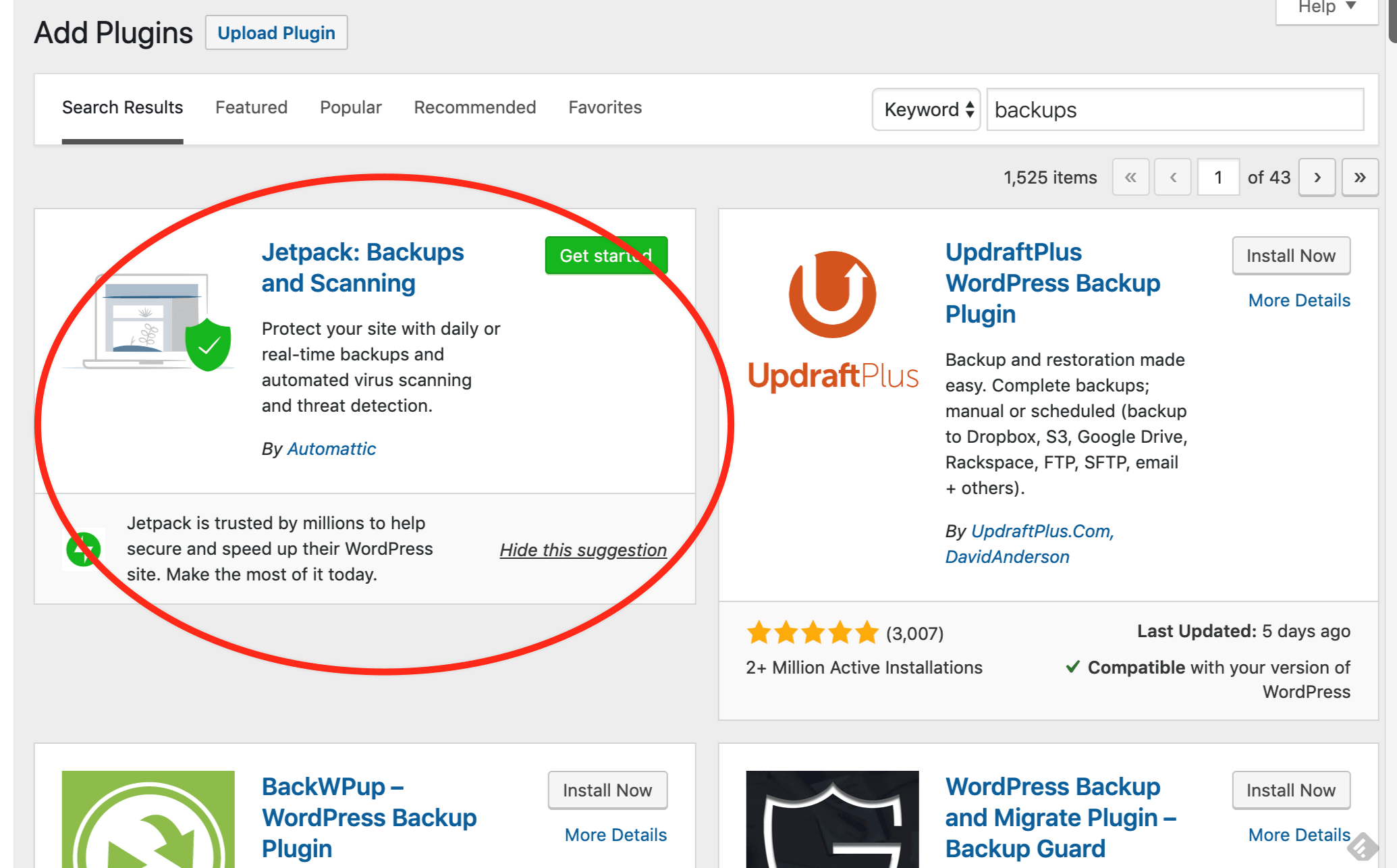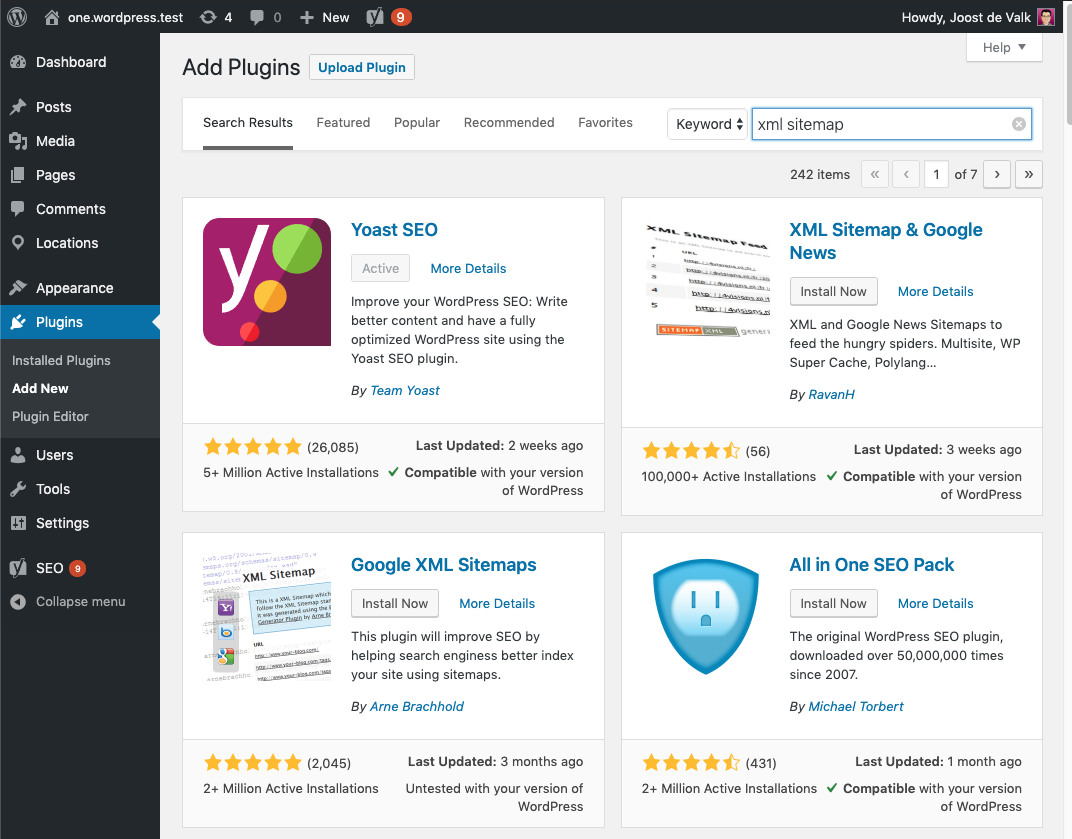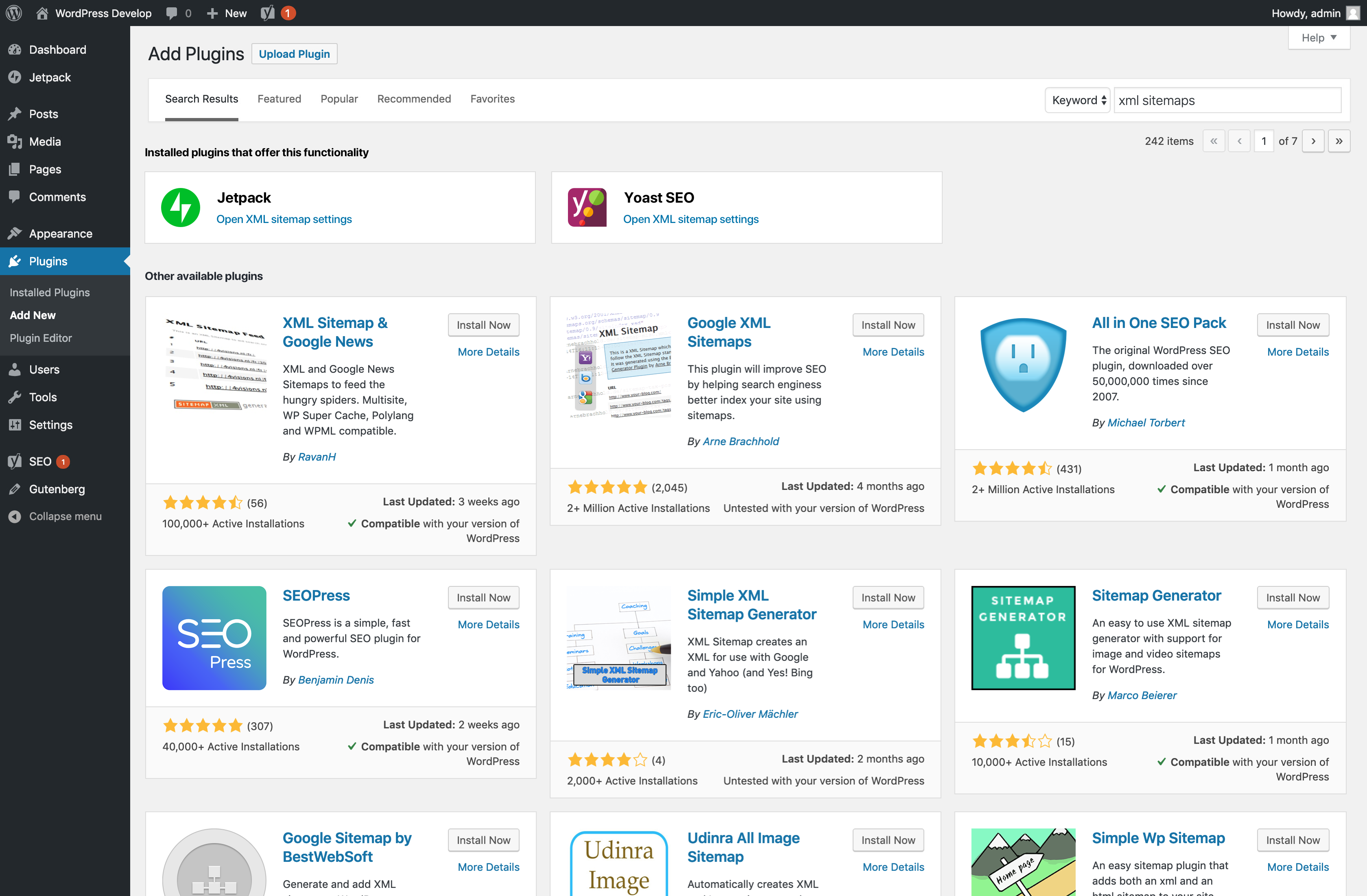Yesterday the discussion surrounding Jetpack’s implementation of feature suggestions in the plugin search screen became heated after developers pointed out that Automattic is also using these suggestions to promote paid upgrades. You can test this by searching for “backups” where you find that Jetpack’s commercial offering takes the place of the first result, pushing all other results further down one slot.
The feature suggestions were added in versions 7.1 to inform users of an existing feature in Jetpack when they search for something similar. The Jetpack team said they developed it to solve a discovery problem, where users are quite often not familiar with all of Jetpack’s 45 modules and end up installing plugins to perform functionality that Jetpack already includes. A PR in the Jetpack repository has been merged to only show feature suggestions when the user’s plan supports it, so it looks like these promotions for commercial features will be removed in a future release of the plugin.
It’s not clear whether Automattic intentionally rolled out the feature suggestions in its current form (with paid upgrades included) to test the waters and gauge the community’s reaction, or if it is simply a mistake. The PR was marked as an enhancement, not a bug.
According to Plugin Team member Samuel “Otto” Wood, feature suggestions with paid upgrades included is “likely a violation” of the plugin directory’s guidelines.
“Promoting other plugins or premium upgrades in the same space would likely not be allowed, because it would be misleading or an incorrect place to put ‘advertising,’ Wood said. “Guidelines already say not to do that.”
I contacted the Plugin Team today and it seems the topic of feature suggestions on the plugin screen are still a matter of ongoing debate. The team would not officially confirm whether or not Jetpack is currently in violation.
“I can’t confirm that at this time,” Mika Epstein said. “It might be a violation, but it also may not be. Much of that comes down to intent.
“A case can be made that they’re promoting paid services for existing features, and is that different from an image-optimizer plugin promoting it’s own service which you’re already using? It’s not like they’re promoting separate plugins, so it’s in a very odd grey area for services.”
Epstein said the team is “still arguing the semantics internally about that one.”
Many people have asked why Jetpack has not been removed from the plugin directory for advertising its commercial offerings on the plugin screen. The Plugin Team’s official response is that if Jetpack is in violation, they reserve the right to make an exception and opt not to close it. Epstein, on behalf of the team, offered the following statement:
It falls under our 18th guideline:
We reserve the right to NOT close a plugin and grant exceptions.
Closing plugins is ALWAYS a tricky thing. We regularly warn, and do not close, larger plugins as closing them would have an adverse impact on the entire WordPress community. Closing plugins with 500,000 users can be more harmful than helpful, even when there are security problems. The more users a plugin gets, the more difficult it is to weigh the risks of closing versus not closing.
Maintaining the trust in larger plugins is as important as doing so with the directory as a whole. With so many outlets wanting to spin up FUD and blast outrage at everyone involved as their first reaction, we try to stem the tide a little and not act like the sky is falling all the time.
Jetpack has more than 5 million active installs. If it is found to be in violation of the guidelines, it is not likely to be removed due to the impact it would have on millions of WordPress users, not to mention the hosts who have it pre-installed on WordPress hosting plans.
The discussion regarding how WordPress can improve the implementation of feature suggestions on the plugin screen for all plugins is happening in a ticket on trac opened by Joost de Valk. This ticket does not debate whether or not feature suggestions are a good idea in general but rather focuses on how results can better communicate that a feature is already active or available. de Valk shared a screenshot of what the screen currently looks like when a user searches for a plugin for which they already have a match installed:
“The disabled ‘Active’ button there is not very useful, as it doesn’t provide any context as to why that button is disabled,” de Valk said. “I’d like to propose a change: let’s turn this into two separate groups of results, one that says ‘these plugins you already have installed might be able to help’ and then a second group below that with other plugins.”
Tim Hengeveld posted a mockup of what an implementation of that might look like:
The topic of feature suggestions on this screen is still highly controversial, despite the Plugin Team confirming that it is not breaking the guidelines (as long as plugins don’t promote paid upgrades). Plugin authors have worked for years towards better rankings on this screen by providing quality support and updates that translate into better ratings and more installs. Any mega plugin that offers multiple modules packed into one can easily usurp these rankings by suggesting its own features and having them automatically appear in that top slot. These features could even be broken down into multiple micro-modules so that there is always something to suggest.
I make a bit of side income off of https://t.co/aqHIydpjrL
ALL folks who purchase come from free users of my WordPress(dot)org-hosted plugin.
After years of hard work, it shows up first in the list when you search for the word "Tweet."
Unless you have Jetpack installed. pic.twitter.com/9stTJ4TJre
— Ben Meredith @benunc@fosstodon.org (@benUNC) April 3, 2019
https://twitter.com/glueckpress/status/1113328574050787328
Many in the WordPress development community are worried that plugin authors will move towards distributing their work as large suites of modules in order to take advantage of promoting their own features in the plugin search screen. This seems even more likely with block developers releasing massive collections of Gutenberg blocks.
WordPress.org is at a crossroads here that may open the floodgates to plugin authors looking to leverage this screen to their own advantage. Jetpack’s move to suggest its own features on this screen, instead of opting for an admin notice or using its own dashboard, is going to have a major ripple effect throughout the plugin ecosystem that has the potential to change how plugins are packaged, distributed, and marketed.




We are actively working on a new release of Jetpack which will remove the upgrade prompts and help make it more clear that these suggestions are from Jetpack and not the directory. It should be out today or tomorrow.
As you reported above we have PR’s moving now and should see a release shortly. Our primary goal here is to help users and to prevent confusion, which is why I am excited to see Joost’s and other recommendations on how we can better communicate feature availability to users.
We will gladly update Jetpack to accommodate or use a better solution when and if that becomes available. I think we have a lot to share on the matter as well. There are a great deal of users across the web that experience WordPress through curated installations, or are unfamiliar with the details of how plugins work. All too often users end up installing several plugins to solve a single problem because they are unfamiliar with what to do next, where settings live, what features are packaged in a plugin, etc… These feature hints help to solve this for them, and if it’s a catalyst for core solution then all the better.